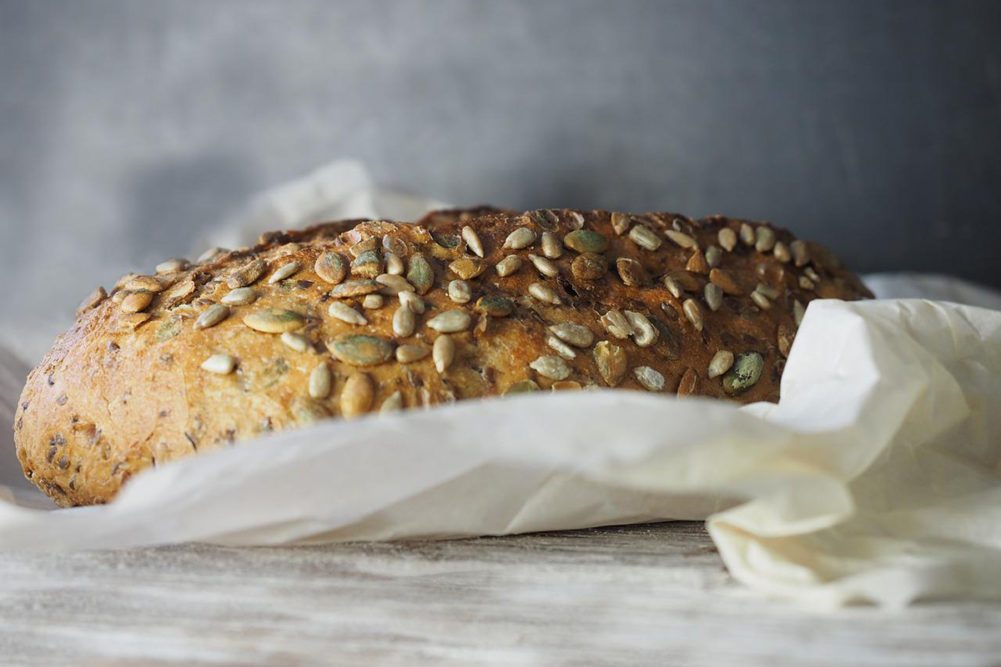Large-scale bakeries to smaller artisan bakers are dabbling or going all in on whole grains, sprouted and alternative grains and healthy inclusions.
“We have endless varieties of flour made with endless varieties of grain, like sprouted quinoa flour and all of these high nutrient flours that are now available — flours made from vegetables, flours made from fruits,” said Jon Davis, culinary innovation leader at Aspire Bakeries, Los Angeles, “It’s amazing what you can actually get out there. I have a sprouted oat flour I’m going to start working with, trying to bring a lot more nutrition and variety to our core breads.”
He also mentioned beet flour, upcycled flours made with spent grains from the brewing industry and more.
“I’ve even come across this pumpkin seed flour that has some great nutrient content,” he added. “They can bring a lot of higher nutrition to your everyday breads. It’s all experimental right now. We have to prove out all these claims and see if they functionally work, but we’re in those early stages of testing.”
Craig Ponsford is a 30-year veteran of artisan baking who has served as a baking instructor and is now the owner of the artisan bakery Ponsford’s Place Bakery & Innovation Center in San Rafael, Calif. He opened the bakery 12 years ago to be 100% whole grain, which was a rarity then.
“Now I would say most of my peers are dabbling in some pretty high percentages if not all of their bread being whole grain,” he said. “That tide turned fairly fast in the last 12 years.”
He also said that in-house milling is a big buzzword in artisan baking.
“A lot of professional bakeries are milling a portion of their flour if not all their flour,” Mr. Ponsford said. “There are people who are ‘fresh flour or nothing.’ And there are people like me. I’d rather have someone mill it for me. It’s an added skill set. I know some really talented bakers that have been milling for a while now, and if they were standing next to me, I would guess they would say it took them five to six years to really be good at milling.”
Peter Reinhart, artisan baker, author of James Beard award-winning cookbooks and an instructor at Johnson & Wales University, said he’s seeing the rise of craft millers.
“The one I reference a lot because it’s close to me is Carolina Ground out of Hendersonville, NC,” he said. “It’s a small stone ground mill. The miller is a woman named Jennifer Lapidus, and she contracts with farmers within a 100-mile radius of her to grow grains, and at the same time she’s finding artisan bakers who are willing to buy those grains if she mills them. They create a coalition of baker, miller and farmer.”
He’s also seeing the influence of more women and people of color entering the baking space, both at the artisan level and at larger bakeries.
“When I go to conferences, the leadership are all those old white men, and that’s a model that’s changing,” Mr. Reinhart said. “More women bakers are getting into the artisan bread side, and they’re influencing the products, so we’re seeing a lot of products being developed that are heritage-type bread. A baker that may have a Guatemalan background is going to bring that influence into the type of products they’re baking. A lot of the people getting into that are women.”

